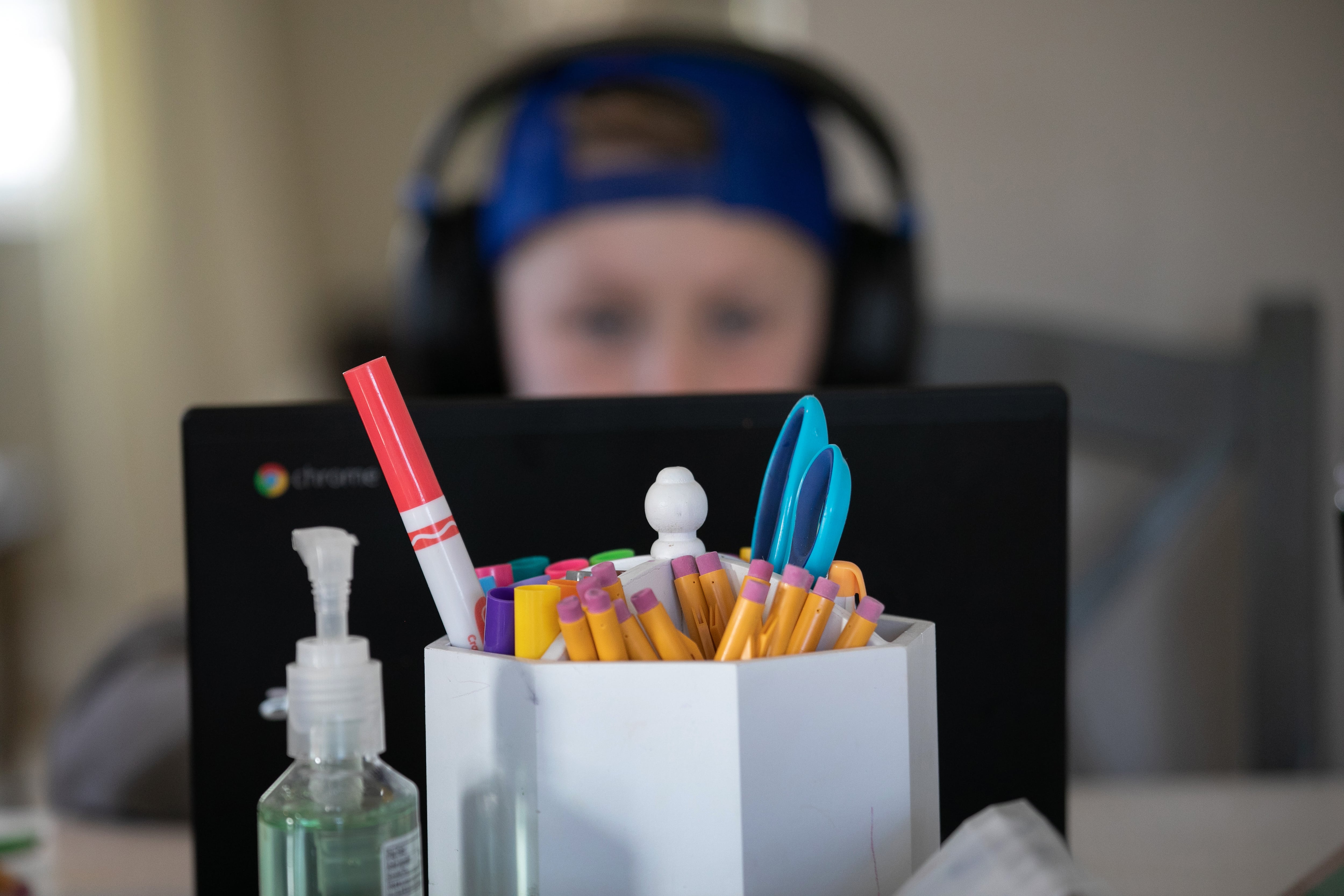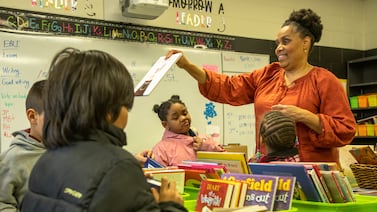Most years, to keep summer school class sizes small, Pike Township targets students who need remediation. This year, amid the coronavirus health crisis, the district will instead offer an online program to any student who is interested.
The virtual summer school will cover all academic subjects — math, reading, science, social studies, and health — but will likely look a little different than the current version of online learning, said Superintendent Flora Reichanadter. Specifically, teachers are working to come up with activities that are more flexible and don’t require sitting in front of a computer all day.
“Everybody’s kind of … sick of all of this,” she said. “What we are doing is: How can we make summer school a little more fun and engaging for our students to break out of monotony?”
Helping students catch up and stay on top of their skills will be especially important this summer, after schools statewide closed for months in response to the pandemic. Pike Township is hardly alone in rethinking summer school. Districts nationwide are grappling with how to approach summer courses — whether to dramatically expand the number of students participating or focus on catching up students who have fallen further behind.
Gov. Eric Holcomb hasn’t offered direct guidance on summer programming, so administrators are largely preparing to offer as much as they can virtually. That has some administrators worried that low-income students without access to technology or the internet will continue to be at a disadvantage.
Funding for summer school could be the first hurdle as districts begin submitting requests to the state. State Superintendent Jennifer McCormick has already said the department likely won’t be able to fully fund all programs. The state requested $28 million in federal summer school funding, but received a total of $18.3 million for the state’s more than 300 districts, she said.
Dozens of superintendents nationwide wrote a letter to Congressional leaders asking for more money for summer school in a future coronavirus relief package. Additional federal funds would give schools, “a fighting chance at salvaging the futures of millions of young people,” the letter said.
Reichanadter said she’s expecting demand for summer school to be higher than in years past. In part because some summer camps are canceling their programming. But she said the district should be able to pull off the expansion without requesting additional funding from the state. Virtual summer school means the district can save money on transportation and building staff, including principals and nurses.
Her biggest concern with the online summer program is how students from low-income families will fare. At Pike, around 71% of students qualify for free or reduced-price lunch, a common measure of poverty.
“I am very concerned about our under-resourced students,” Reichanadter said. “We cannot replicate the instruction lost over the amount of time spent during a stay-at-home order in a summer school session.”
In Gary, administrators are planning to distribute Chromebook laptops to families who need one for summer school. The northern Indiana district, where all students receive free meals, is also planning to run its program entirely online and expand it to any interested student.
So far, 1,000 elementary school students have signed up — “the biggest number we’ve had in years,” the district’s interim emergency manager, Paige McNulty, said during Thursday’s Distressed Units Appeals Board meeting. Around 300 high schoolers have also signed up to do online credit recovery classes during the summer.
Indianapolis Public Schools won’t offer a “structured” summer school program for K-8 students because the district has only distributed devices to high schoolers. That means, the district won’t offer intensive reading remediation for third graders as it has in previous years. High schoolers will still have access to make-up classes online.
IPS Superintendent Aleesia Johnson said the district will still provide resources, including some free online learning programs, that K-8 students can use over the summer.
Under normal circumstances, Chantel Rammel said her daughter, who is an eighth grader at Center For Inquiry 84 in IPS, would have spent the summer taking prerequisite high school classes, including gym. Now, that likely isn’t an option.
It’s difficult to make a decision about whether or not to enroll in summer courses without knowing what school will look like in the fall, Rammel said. If classes remain online for the fall semester, she said it would be more important for her two high school-aged children to continue learning through the summer months.
“You’re missing out on some things, so I think [summer school] would probably be good,” she said. “To stay fresh and connected.”







